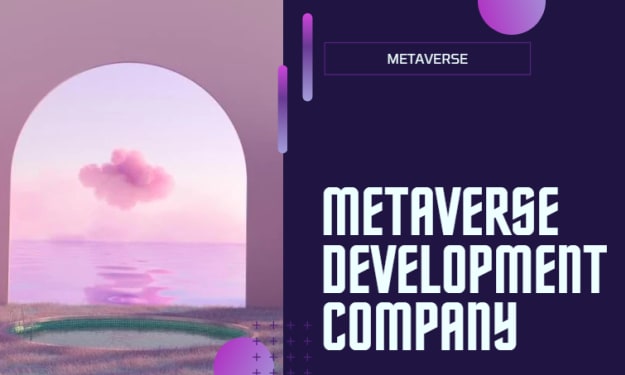"Land Your Dream Job: Mastering the Art of Behavioural Interviewing with 7 Key Questions"
How to tackle the top 7 behavioral interview questions with answers

"Land Your Dream Job: Mastering the Art of Behavioural Interviewing with 7 Key Questions"
Introduction
Behavioural interview questions are the new buzz in the world of recruitment. These questions delve deep into a candidate's past experiences and behaviors to predict their future performance in the workplace. Unlike traditional interview questions that focus on technical skills and qualifications, behavioral questions aim to understand a candidate's soft skills, such as teamwork, communication, problem-solving, and leadership. By understanding a candidate's past actions and decision-making processes, employers can gain a better insight into their suitability for the role and company culture. If you're preparing for a job interview, make sure to brush up on your behavioral interview skills and come ready to provide specific, concrete examples of your past experiences.
Let’s dive deep into your past experiences and behaviours in a job interview. Get prepared to showcase your strengths and capabilities with these top 7 behavioral interview questions that are taking the recruitment world by storm. These questions aim to provide employers with a better understanding of your soft skills, problem-solving abilities, and leadership potential. So, buckle up and get ready to show off your best self!
1. Tell me about how you worked effectively under pressure.
What They Want to Know:
If you’re being considered for a high-stress job, the interviewer will want to know how well you can work under pressure. Give a real example of how you’ve dealt with pressure when you respond.
Example Answer
“I had been working on a key project that was scheduled for delivery to the client in 60 days. My supervisor came to me and said that we needed to speed it up and be ready in 45 days, while keeping our other projects on time. I made it into a challenge for my staff, and we effectively added just a few hours to each of our schedules and got the job done in 42 days by sharing the workload. Of course, I had a great group of people to work with, but I think that my effective allocation of tasks was a major component that contributed to the success of the project”.
2. How do you handle a challenge? Give an example.
What They Want to Know:
Regardless of your job, things may go wrong, and it won’t always be business as usual. With this type of question, the hiring manager wants to know how you will react in a difficult situation. Focus on how you resolved a challenging situation when you respond. Consider sharing a step-by-step outline of what you did and why it worked.
Example Answer:
“One time, my supervisor needed to leave town unexpectedly, and we were in the middle of complicated negotiations with a new sponsor. I was tasked with putting together a PowerPoint presentation just from the notes he had left, and some briefing from his manager. My presentation was successful. We got the sponsorship, and the management team even recommended me for an award”.
3. Have you ever made a mistake? How did you handle it?
What They Want to Know:
Nobody is perfect, and we all make mistakes. The interviewer is more interested in how you handled it when you made an error, rather than in the fact that it happened.
Example Answer
“I once misquoted the fees for a particular type of membership to the club where I worked. I explained my mistake to my supervisor, who appreciated my coming to him, and my honesty. He told me to offer to waive the application fee for the new member. The member joined the club despite my mistake, my supervisor was understanding, and although I felt bad that I had made a mistake, I learned to pay close attention to the details so I can give accurate information in the future”.
4. Give an example of how you set goals.
What They Want to Know:
With this question, the interviewer wants to know how well you plan and set goals for what you want to accomplish. The easiest way to respond is to share examples of successful goal setting.
Example Answer
“Within a few weeks of beginning my first job as a sales associate in a department store, I knew that I wanted to be in the fashion industry. I decided that I would work my way up to department manager, and at that point, I would have enough money saved to be able to attend design school full-time. I did just that, and I even landed my first job through an internship I completed the summer before graduation”.
5. Give an example of a goal you reached and tell me how you achieved it.
What They Want to Know:
The hiring manager is interested in learning what you do to achieve your goals and the steps you take to accomplish them.
Example Answer
“When I started working for XYZ Company, I wanted to achieve the Employee of the Month title. It was a motivational challenge, and not all the employees took it that seriously, but I wanted that parking spot and my picture on the wall. I went out of my way to be helpful to my colleagues, supervisors, and customers—which I would have done anyway. I liked the job and the people I worked with. The third month I was there, I got the honor. It was good to achieve my goal, and I ended up moving into a managerial position there quickly, I think because of my positive attitude and perseverance”.
6. Describe a decision you made that wasn't popular, and explain how you handled implementing it.
What They Want to Know:
Sometimes, management must make difficult decisions, and not all employees are happy when a new policy is put in place. If you’re interviewing for a decision-making role, the interviewer will want to know your process for implementing change.
Example Answer
“Once, I inherited a group of employees when their supervisor relocated to another city. They had been allowed to cover each other’s shifts without management approval. I didn’t like the inconsistencies, where certain people were being given more opportunities than others. I introduced a policy where I had my assistant approve all staffing changes, to make sure that everyone who wanted extra hours and was available at certain times could be utilized”.
7. Give an example of how you worked on a team.
What They Want to Know:
Many jobs require working as part of a team. In interviews for those roles, the hiring manager will want to know how well you work with others and cooperate with other team members.
Example Answer
“During my last semester in college, I worked as part of a research team in the History department. The professor leading the project was writing a book on the development of language in Europe in the Middle Ages. We were each assigned different sectors to focus on, and I suggested that we meet independently before our weekly meeting with the professor to discuss our progress and help each other out if we were having any difficulties. The professor appreciated the way we worked together, and it helped to streamline his research as well. He was ready to start on his final copy months ahead of schedule because of the work we helped him with”.
In conclusion, behavioural interview questions are becoming increasingly popular as a way for employers to get a deeper understanding of a candidate's fit for the role and company culture. By asking about specific experiences and behaviors, employers can gain insight into a candidate's soft skills and decision-making processes. So if you're preparing for a job interview, be ready to showcase your past experiences and behaviors in a positive light. Remember, it's not just about what you say, but how you say it and the examples you provide. Good luck!
About the Creator
Arun Kumar
Am a passionate Blogger and aspire to be a best-selling author. I am always willing to go that extra mile to make a difference in my life to create value for myself and others.






Comments (1)
This masterpiece is for those who wonder why they fail miserably with this kind of questions in interview to crack the code to upgrade their career progression pretty quickly